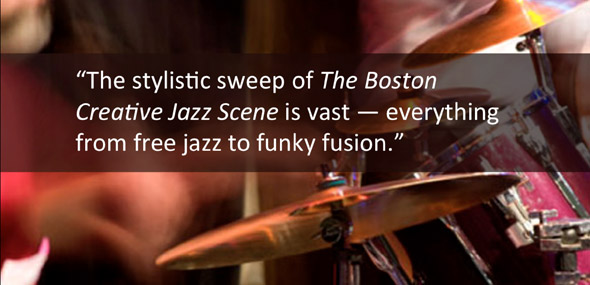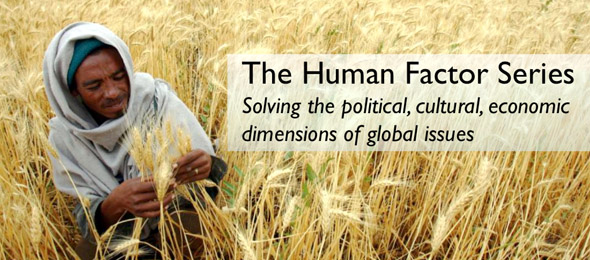Said and Done
March 2016 Edition
Published by the Office of the Dean
MIT School of Humanities, Arts, and Social Sciences

QUOTABLE
Through his research and teaching, MIT historian of technology Clapperton Mavhunga reveals that innovative technology can emerge in many and varied circumstances around the globe — and not only in labs.
HONORS
MUSIC
Patricia Tang named a MacVicar Faculty Fellow
“It is a tremendous honor to be selected as a MacVicar Faculty Fellow. I am truly humbled," said Tang. "As an ethnomusicologist, I love many aspects of my job, but there is nothing more gratifying than sharing my passion for African music with MIT students, and giving them tools to better understand music and its broader cultural contexts."
Story at MIT News | Archive story: Global Drumbeat: Profile of Patricia Tang 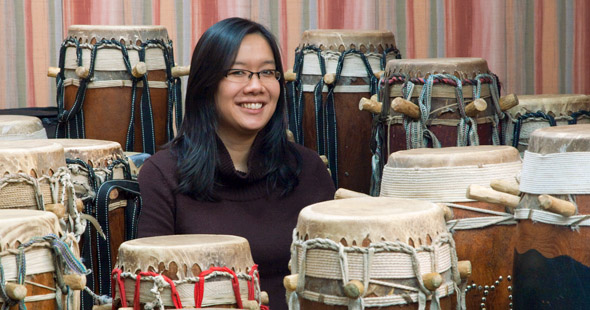
Patricia Tang, Associate Professor of Music
RESEARCH
ECONOMICS
Trading places | David Autor
MIT economist Autor takes a look at the evidence that the U.S. has lost millions of jobs to China and finds that lower-skilled workers are on "a permanently lower [wage] trajectory." His research reinforces for policymakers that trade policy does not stand apart from larger issues concerning the social fabric of America. If we now recognize "that trade has very strong disruptive effects,” Autor says, “then what do we do about it? What is the right policy?”
Story by Peter Dizikes at MIT News
LINGUISTICS
Code of the humans | Chomsky and Berwick
New book by Noam Chomsky and Robert Berwick explores how people acquired unique language skills.
Story by Peter Dizikes at MIT News
LINGUISTICS | ORIGINS OF HUMAN LANGUAGE
Integration hypothesis | Shigeru Miyagawa
"The Integration Hypothesis holds that human language is an integration of two independently occurring systems in nature that underlie communication."
PDF + Download Paper | Miyagawa website
SCIENCE, TECHNOLOGY, AND SOCIETY
African technology | Clapperton Mavhunga
Mavhunga’s research illuminates the abundant and sophisticated technology of Africa. ”People once thought there was no science in Africa, he says, because they could not identify the “scientist” or “engineer.” And yet, he points out, throughout the 19th and 20th centuries, Western universities and governments sent one scientific expedition after another to Africa to collect plant samples and medicinal knowledge discovered and developed and by spiritual healers. “Without taking stock [of] the spiritual [life in Africa],” he says, “it’s impossible to understand how African knowledge comes to be produced.”
Story by Peter Dizikes at MIT News | Mavhunga webpage
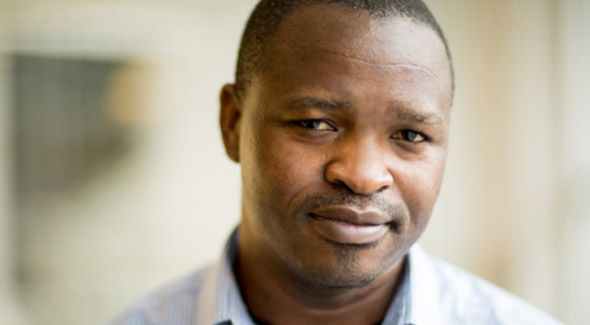
Clapperton Mavhunga, Associate Professor of Science Technology, and Society
CENTER FOR INTERNATIONAL STUDIES
MIT entrepreneur-repats in Africa
Entrepreneurs returning home to Africa find great promise and many challenges. Students come to MIT from across Africa, totaling about 3% of the Institute’s population. Some stay in the U.S. after graduation, but many return to Africa, often as entrepreneurs. What is life like for these repats, who are building businesses as they reacquaint themselves with their home countries?
Story at MIT News
GLOBAL STUDIES AND LANGUAGES
How U.S. immigration law fueled a Chinese restaurant boom | Heather Lee
Legal historian and Mellon Fellow Heather Lee's research discusses a law that enabled Chinese business owners to travel to China and bring back employees, a policy that fueled a quadrupling of Chinese restaurants in America between 1910 and 1930.
Story at NPR | Lee webpage
POLITICAL SCIENCE + NEUROSCIENCE
Perceived threats and policy | Marika Landau-Wells
“My hope is that the theory and language and framework I’m building will help people understand why they disagree about policies made in response to perceived threats,” says Political science PhD student Marika Landau-Wells. "These threats,” she explains, can range from nuclear weapons to influxes of immigrants."
Story at MIT News | Landau-Wells webpage | Video: Threat perception as a cause of war

L: Heather Lee, Mellon Fellow in Global Studies and Languages
R: Marika Landau-Wells, doctoral candidate in Political Science
BOOKSHELF
MUSIC
Boston's creative jazz scene | Mark Harvey
In this recording and book set, Harvey details the development of The Boston Creative Jazz Scene, 1970-1983. Harvey, who has been deeply involved in Boston jazz, is an author, composer/musician, artistic director of the Aardvark Orchestra, and senior lecturer in MIT Music.
Review at All About Jazz | Review at Flea Market | Harvey webpage
FEATURE
THE HUMAN FACTOR SERIES
Solving the economic, cultural, and political dimensions of major global challenges
The ongoing Human Factor series highlights research and perspectives on the human dimensions of global challenges. Contributors describe humanities, arts, and social science research that generates social innovation, and share ideas for cultivating the sociotechnical collaborations needed to solve the major issues of our time.
Browse the series
Human Factor: How social equity fuels innovation | Economic historian Anne McCants
“Economic history viewed on a very long timescale tells us that innovation and population size/density are highly correlated. A shorter time horizon tells us that population size alone is not enough. Rather, it is in populations where lots of people are both permitted and capable of ‘having a go,’ where innovation thrives best.”
3Q Interview with Anne McCants
FORTHCOMING EVENTS
SHASS INFINITE MILE AWARDS 2016
Nominate a worthy SHASS colleague by April 8, 2016.
Online nomination form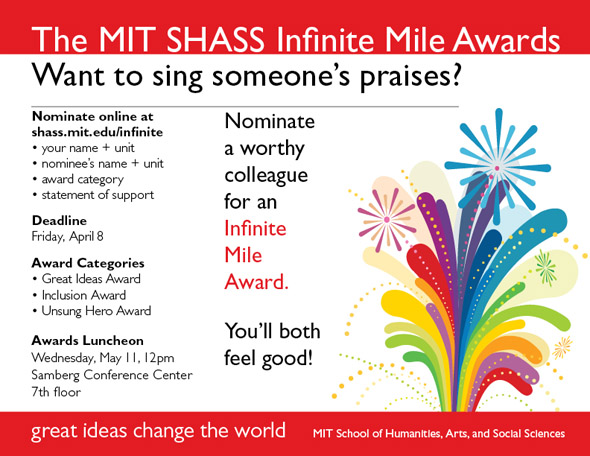
INTERNATIONAL STUDIES
Bustani Middle East Seminar celebrates 30 years | Lecture on March 15
Funded by Myrna Bustani in memory of her father, Emile M. Bustani '33, the seminar is hosting two public lectures in March.
Story
MIT PHI BETA KAPPA
MIT PBK Chapter to welcome Visiting Scholar Mae Ngai on April 6-7
The MIT campus chapter will host a PBK Visiting Scholar, Professor Mae Ngai, from the History Department at Columbia University, on April 6-7. Professor Ngai will give a public lecture, "The Chinese Question and Global Politics in the Nineteenth Century" at 5pm on April 6.
More information at PBK
IN THE MEDIA
SHASS In the Media | March 2016
For more of the many recent media stories about SHASS research and faculty, visit the complete
In the Media section
POLITICAL SCIENCE | FIGHTING THE ZIKA VIRUS
Three lessons from Ebola can help us fight the Zika virus | Lily Tsai
The Washington Post highlights research by MIT political scientist Lily Tsai and the MIT GOV/LAB project. In a project that examined community response to the Ebola outbreak in Monrovia, Liberia, “Tsai and colleagues found that community outreach had a positive impact on citizen cooperation and trust in state authorities.”
Story | Lily Tsai website | MIT GOV/LAB website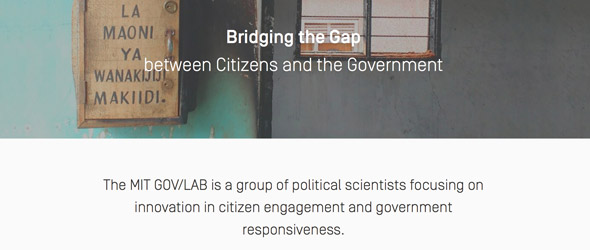
ECONOMICS | COMPTON LECTURE
Christine Lagarde: Thinking globally, speaking locally
In her March 3 Compton Lecture at MIT, the IMF managing director called for new technology and policies to reckon with population growth. In a sweeping overview of global demographics and their effects on our civic structures, Lagarde said “The fiscal policy responses and technological innovation are especially important parts of the solution.”
Video | Story at MIT News
DEVELOPMENT ECONOMICS
Ideas on a shelf help no one. Take them to the world.
“Distributing, promoting, and lending continuous support to good ideas for fixing the world's woes is as critical a task as thinking them up in the first place.” Story spotlights successful HIV prevention project developed by Noam Angrist, a former JPAL researcher and student of MIT economist Esther Duflo. The HIV prevention project is based on research by MIT's Pascaline Dupas.
Story at New York Times | Research Page at JPAL
MUSIC
3Q with Eran Egozy | World-premiere concert that the audience helps perform
Egozy discusses “12,” a chamber music work debuted by the Radius Ensemble on March 5 at MIT. Egozy, who teaches courses in interactive, high-tech music at MIT, performs in Radius and created the digital program used for the audience/smartphone-driven percussion in "12." Egozy is the co-founder and former chief technology officer of Harmonix.
Story at MIT News | Egozy webpage at MIT Music
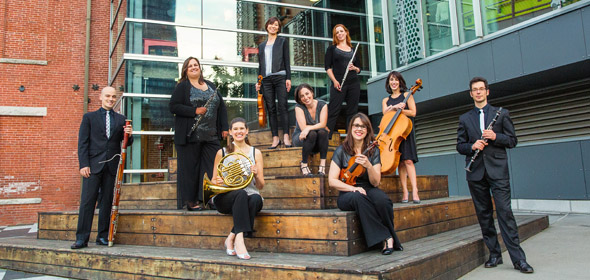
The Radius Ensemble; Eran Egozy at right with clarinet
PHILOSOPHY AND CLIMATE CHANGE
Is this who we are? | Sally Haslanger
“I am also impressed by many elements of ‘A Plan for Action on Climate Change’ … I am concerned, however, with some of the reasoning about the significance of divestment and the decision not to create an Ethics Advisory Council. Ethics and social meaning are topics that fall squarely in the humanities, arts, and interpretive social sciences. Might it be worth considering what MIT’s experts in these areas have to offer?”
Commentary: Faculty Newsletter Jan/Feb 2016 | Related: MIT agreement on climate-related action
HISTORY
Harvard drawn into race battle at U.S. universities | Craig Wilder
In an article on campus debates about racially-charged language, MIT historian Craig Wilder explains that “the continuing conversation about the legacy of slavery on campus has been stirred by the current activism of students — in part inspired by the Black Lives Matter movement — and not by the institutions themselves.”
Story at the BBC | Wilder webpage
COMMUNICATIONS FORUM
Podcast and summary: Is there a future for in-depth science journalism?
Traditional media outlets have been facing budget cuts and layoffs for years, with specialized reporters often among the first to go. Yet last year, Boston Globe Media Partners made a significant investment in launching STAT, a new publication that focuses on health, medicine, and scientific discovery. STAT‘s leadership and reporting team discuss how the field of science journalism is changing. Moderated by Seth Mnookin, MIT Associate Professor of Science Writing.
Podcast + Summary | Communications Forum
SCIENCE, TECHNOLOGY, AND SOCIETY
Sherry Turkle's books featured in New York Review of Books
Turkle's books, Alone Together and Reclaiming Conversation, are featured in a lengthy essay in the February 25, 2016 issue of The New York Review of Books.
Review | Turkle webpage
ECONOMICS AND RETIREMENT
Annuities as an alternative to shaky markets? Not so fast | James Poterba
The New York Times explores the benefits and dangers of annuities, citing retirement savings research by MIT economist James Poterba.
Story at New York Times
ECONOMICS AND AMERICAN JOBS
The recovery is generating more high-wage jobs — but does that matter? | David Autor
Research by MIT economist David Autor is cited in an article on the pace of the U.S. economic recovery and the quality of jobs available.
Story at the Washington Post | Autor webpage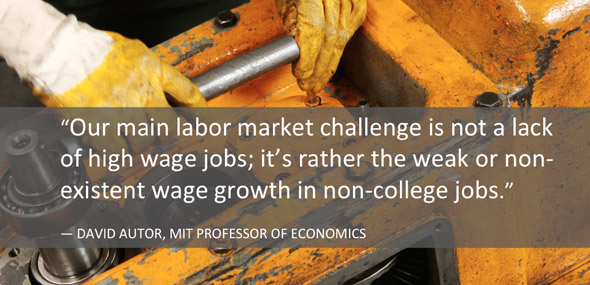
STAY IN TOUCH
SHASS stories on MIT News
Bookmark this page
MIT SHASS social media
Facebook | Twitter
MIT-SHASS Publications Directory
Online portal to all MIT-SHASS publications
Said and Done is published by the Office of the Dean,
MIT School of Humanities, Arts, and Social Sciences
Editor and Designer: Emily Hiestand, Director, SHASS Communications
Publication Associate: Daniel Pritchard, SHASS Communications
Published 9 March 2016
About the School
MIT champions the power of STEM + SHASS for research and for educating great engineers, scientists, scholars, and citizens.
Meeting great challenges — Generating solutions for the great challenges of our age requires both advanced technical and scientific knowledge and a deep understanding of the world's human complexities. MIT-SHASS researches and advances the cultural, political, and economic dimensions of innovation — the broad range of human realities, from deeply-felt cultural traditions to building codes to political tensions, in which science and technology issues are embedded.
Excellence — In 2015, MIT's Social Science disciplines were ranked first in the world, and MIT's Humanities and Arts disciplines were ranked among the top three worldwide.
Research with a global impact — The MIT-SHASS research portfolio is vast, including anthropology, comparative media studies, economics, history, international studies, languages, linguistics, literature, music and theater arts, political science, philosophy, security studies, and writing, including science writing.
Education that empowers — The School teaches every MIT undergraduate, empowering students with cultural and historical perspectives, and critical thinking and communication skills — to help them serve the world wisely and well. The School's seven graduate programs are all recognized as among the finest in the world.
Cultivating leaders — SHASS has a central role in international education at MIT, and in preparing students for leadership at home and on international teams. Through all their SHASS coursework, and in MISTI, the School's pioneering applied international education program, MIT students learn how to work, collaborate, and thrive in cultures around the globe.
